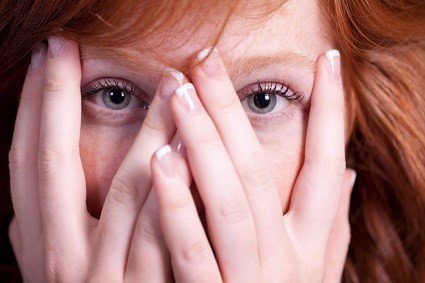
“The reason we struggle with insecurity is because we compare our behind-the-scenes with everyone else’s highlight reel.” –Steve Furtick
Insecurities can play a powerful role in anyone’s life. Insecurities are why we hide our flaws and cover up anything that is less than perfect. As the above quote states, our insecurities become more apparent when we are constantly comparing ourselves to the images we see on TV, magazines, and social media. Many patients at Walden Behavioral Care say that they struggle the most with comparison on Instagram and Facebook, as opposed to in the pages of their favorite magazine. Why? It is easier to justify how the cover-model on the magazine went through hours of hair, make-up, and wardrobe before her photoshoot. There has recently been more awareness of photo-editing software, so patients usually recognize that the image they see isn’t actually real.
With social media, however, this feels different. When you see an image on Instagram of the girl who lives next door, she may actually look the same in the image as she looks in real life. It is harder to justify, because you know she didn’t hire a professional make-up artist before she posted that selfie. Suddenly, after just a few minutes of looking at your smartphone, all of your insecurities start rushing through your mind. You’re sitting there in your pajamas with your hair all messy, and she looks like a supermodel.
That’s just the thing, though. At some point, that person was also sitting in her pajamas with her hair all messy. But she didn’t post it online. We don’t post pictures of our moment-to-moment life because we often feel insecure in those moments. We post the cream of the crop – the “highlight reel” Steve Furtick speaks of. Since the advent of the smartphone, how often do you take just one picture of you and your friends and it ends up being the picture you post online? Usually there are several photos taken, and people spent a lot of time scrutinizing every aspect to make sure it’s “good enough” for the Internet.
How do you challenge these racing insecure thoughts? The next time you have an appearance-related insecurity, try not to acknowledge it out loud. For example, if you feel like your hair is a mess, you may have the urge to greet your friends with “Ugh, my hair is a disaster today!” You feel better for a moment, as if by acknowledging your alleged flaw before anyone has the chance to notice, your friends won’t judge you. Your armor is on. You made sure to let them know you were already aware of the hair disaster. But really, all you did was give your insecurity power over the moment, and therefore power over you.
If we refuse to face our insecurities, we reinforce them as being bad, unacceptable things. For example, maybe someone won’t wear jeans because they are insecure about their thighs. The longer that person goes without wearing jeans, the more fear they develop of wearing jeans, and this insecurity grows even larger. Sure, the first time they do wear jeans, their anxiety may shoot through the roof. They may want to change immediately. Even if they receive compliments, the overwhelming insecurity may outweigh the positive feedback. After a few times of exposing themselves to their own insecurities, however, their anxiety is likely to decrease. They may not feel the insecurity has power over them anymore. This is how we fight insecurity – by challenging ourselves over and over and using coping skills along the way.
At various points throughout treatment at Walden Behavioral Care’s Adolescent IOP in Braintree, we have practiced “Challenge Wednesday” – a day for patients and staff to do or wear something that makes them feel uncomfortable, or insecure. Some examples include not wearing make-up, wearing tighter clothing than usual, wearing a skirt or shorts, wearing hair in a ponytail, and wearing flats instead of heels. I would challenge any readers struggling with their own insecurities to practice Challenge Wednesday – even if it’s on a different day of the week. For best results, cope ahead by developing a plan for if you get cold feet. Expect to feel anxious and uncomfortable, and identify coping skills to help throughout the day. Post a picture that isn’t just part of your “highlight reel,” but reflects your everyday reality. Who knows who or what you might inspire!
####
About the author:
Erika Vargas, LMHC, is the lead clinician in the Adolescent Intensive Outpatient & Partial Hospitalization Programs at Walden’s Braintree clinic. She is trained in the Maudsley Method/Family Based-Treatment and works with adolescents to decrease eating disorder behaviors with the support of their families. Erika is passionate about promoting healthy body image, understanding the impact of social media on self-esteem, and encouraging parent education in the treatment of eating disorders. In her non-clinical life, Erika enjoys traveling and spending time with her corgi. Erika welcomes comments at EVargas@waldenbehavioralcare.com.






